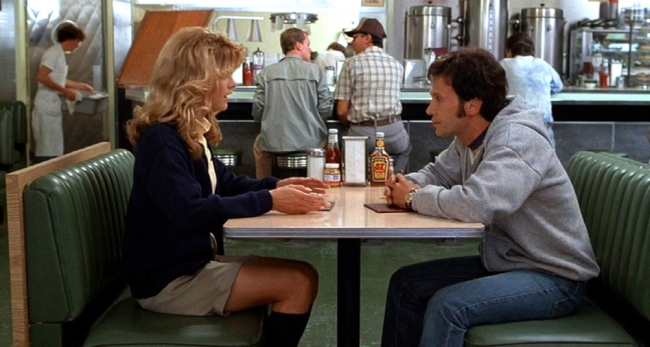"Landline": A nostalgic throwback to '90s NYC

Amazon Studios
As a New Yorker who first moved to town in the early 1990s, around the time the new film "Landline" is set, it’s easy to find lots that’s charming and quaint about the 90-minute movie, which opened in theaters this weekend.
The indie film, starring Jenny Slate, Edie Falco and John Turturro, is a comedy with serious overtones—about a family on the verge of a nervous breakdown with secrets revealed and hidden. While there’s nothing overly sweet about this family, the New York City they live in feels simpler somehow.
The movie's writer-director Gillian Robespierre, and its writer-producer Elisabeth Holm both grew up in New York City in the '90s. Robespierre told The Hollywood Reporter that to be authentic, they had to add in a lot of trash. "2017 New York is crazy. You have Starbucks and Duane Reades all over, but our DP did a good job at framing all of that out. And we had to add a lot of trash. Also, Abby Quinn, who plays Jenny’s little sister in the movie, she was born a year after the movie is supposed to be taking place, so I had to teach her how to put a quarter in the pay phone," she told the magazine.
It's never entirely clear where the family's apartment is, and the movie doesn't focus too much on real estate woes. They mention the Upper West Side, but there's also a shot of an awning outside their apartment that says "Chelsea Gardens."
But without a doubt, "Landline" pays deliberate homage to New York City in 1995, a time when your landline was your lifeline, teens could leave Post-It messages on their pillows to best communicate with their parents (remember those sweet days before texting?) and you’d only have to circle the block a few times before finding a parking space for your boxy Volvo sedan with windows you needed to crank down—no automatic buttons to open and close them then. At one point, Edie Falco's character, who's a government official, talks about then-mayor Rudy Giuliani pouring money into the police department, something New Yorkers of a certain age will also remember.
The eyeglasses are oversized, the bathrooms are hot pink tiled, hanging tapestries make for memorable décor, and the punishment for teen wrongdoing is to lose use of the phone—and by phone I mean one that plugs into a wall—for two weeks.

As I watched the film, I couldn’t help but think that things were just plain easier back then despite the fact that people were way harder to reach (one key scene has Slate—who works in layout at "Paper" magazine—strolling up to a corner NYNEX pay phone to check her landline voicemail messages with a quarter and a pocketful of other coins).
While a lot of the scenes take place in a New York City that feels familiar, it’s the technology depicted in "Landline" that really packs the biggest punch. Whether it’s the massive computer monitors (and square disks of data ready to enter the slots of the oldest of Mac desktops) or the desks at "Paper, which, PS, seem packed with so much more paper and file folders than you’d see at most magazine offices today, it’s hard not to long for the heady ‘90s, when parents still worried that their kids would get mugged (even in neighborhoods like Chelsea and the Upper West Side), when Hillary Clinton was first lady, when news of a sale at Kleinfeld's bridal emporium 'would be delivered in a high-pitched phone message from mom (as happens in the film), and printouts took many a minute to output on dot matrix printers seen today only at Avis or Hertz.
There’s a scene at a downtown record store that really struck a chord. Slate puts on a massively oversized pair of headphones and plugs in a World Music CD and starts dancing. How many of us did the same at the Tower Records on 65th and Broadway—either alone or sharing those headphones with a friend? Spoiler alert: That spot is now a Raymour & Flanigan.
The filmmakers have an eye for detail and to maintain authenticity included the requisite rollerbladers zipping down a brownstoned street, the making of mixed tapes, the living room with stacks of VHS tapes and references to "Mad About You" and the Hammacher Schlemmer catalog.
By the end of the film, 1995 felt like a very long time ago. But "Landline" is a pleasant reminder of life with Walkmans and scrunchies, actual cameras that required walks to the film shop for processing, and families who would eat breakfast while reading the New York Times... not staring at their phones.
You know, the good ole days.
You Might Also Like



























